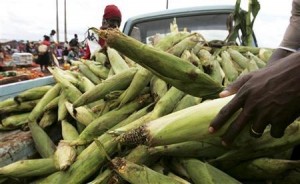The Global Biofuels Alliance has officially launched. The nonprofit organization will work to “give a voice to the producers, traders, feedstock providers, and equipment manufacturers of the emerging biofuel industry.” Made up of ten founding members from various energy sectors including energy trading companies, start-up biodiesel companies and large biodiesel production facilities, the alliance has already set its sights on the hottest topic in the biodiesel industry. “The biodiesel tax credit is a key agenda,” said Wade Randlett, a founding board member of the alliance and cofounder of Enagra Holdings LLC, a holding company for renewable energy projects worldwide. “Although it’s a bit broader than that. I think having some form of longer term incentive for any kind of a renewable diesel, regardless of the feedstock, the source or the technology is important.”
For Randlett and the other members of the alliance, including Hero BX, a 45 MMgy plant from Pennsylvania, the understanding by those in Washington on the subject of biodiesel is very narrow; especially the potential role biodiesel could play in the nation’s future fuel supply. “We think there should be a much broader conversation about the new technologies that are coming online or are online right now,” Randlett said. “Whether it’s a traditional feedstock or a broader biomass-based feedstock, we need to have the conversation about the opportunity to displace imported crude petroleum oil.”
[ad]
With a meeting scheduled in Washington during the week the new Congress starts, Randlett said the organization already has plans to talk with the right people at the right time. “We certainly are not forming because we are in opposition to anybody’s stated agenda,” he said. “It’s really about highlighting our first hand awareness that there is a lack of understanding among elected officials and administration officials that we need to make sure occurs over the next year or two.” One example of a misunderstanding in Congress is one Randlett said happened two years ago when a bunch of people were saying algae and jatropha are going to be the thing. “We knew that there was just no way that was going to be economical any time soon and so what they did was to create a false expectation that there was going to be what I would call these magic crops that could sprout up in the desert and solve our energy independence,” and Randlett said, “that was just never going to be true.” Now, Randlett said, there are non-magical crops that have evolved that we can use to create renewable fuel that are true, and more importantly, that don’t provide false hope.


